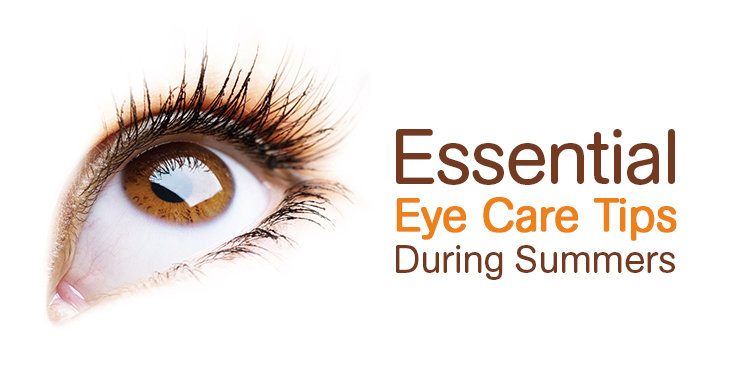Andalusia Pediatrics: Exceptional Take care of Children's Health Needs
Andalusia Pediatrics: Exceptional Take care of Children's Health Needs
Blog Article
Is Refractive Surgical Procedure Right for You? Elements to Take Into Consideration for Better Eyecare
In the realm of eye treatment, the decision to go through refractive surgical procedure is a weighty one that demands thoughtful factor to consider. As people seek clearness and flexibility from the restraints of corrective lenses, various elements come right into play when determining the suitability of such a treatment. From the details of one's eye health to the complexities of personal expectations and everyday routines, each element holds relevance in the broader landscape of refractive surgery candidacy. By assessing these crucial aspects with care and precision, a clearer path towards notified decision-making emerges.
Eye Health Evaluation
When considering refractive surgical procedure, a detailed eye health and wellness assessment is important to examine the suitability of the treatment for every individual. eye center andalusia. This assessment involves a collection of examinations and examinations conducted by an eye treatment expert to determine the total health and wellness of the eyes, the presence of any kind of underlying problems, and the stability of the refractive mistake
Throughout the examination, various factors are considered, such as the client's case history, present eye prescription, corneal thickness, student size, and tear film top quality. These evaluations assist to determine any contraindications to refractive surgical procedure, such as corneal abnormalities, cataracts, or unattended eye infections. Additionally, the analysis helps to take care of client assumptions regarding the prospective end results of the surgery based upon their unique eye attributes.
Eventually, the eye wellness analysis is important in guaranteeing the safety and effectiveness of refractive surgical treatment, as it supplies useful understandings right into the person's eye wellness status and aids identify one of the most suitable therapy alternatives for accomplishing optimum aesthetic results. (cardiologist andalusia)
Lifestyle Assessment
A comprehensive way of life evaluation is important in figuring out the suitability of refractive surgical treatment for an individual's visual improvement needs. Way of living factors such as occupation, leisure activities, and day-to-day tasks play an important function in the decision-making process concerning refractive surgery. As an example, people with occupations that include a high degree of physical task or exposure to environmental elements might have different aesthetic needs compared to those with sedentary workdesk tasks. Comprehending exactly how an individual's way of life may influence their vision post-surgery is vital for managing assumptions and ensuring optimum outcomes.
Additionally, way of life practices such as sports engagement, outdoor tasks, or also skin care routines can influence the recovery procedure and total success of refractive surgical procedure. By carrying out a detailed way of life evaluation, eye care professionals can customize their referrals and treatment plans to fulfill the one-of-a-kind requirements of each client, ultimately leading to improved aesthetic results and complete satisfaction.
Expectation Placement

Patients need to comprehend that while lots of individuals accomplish 20/20 vision or much better following refractive surgical treatment, some might still need glasses for particular activities like reading or driving at evening. Managing these assumptions assists protect against frustration and frustration post-surgery, leading to a more positive general experience for the person.
Risk Evaluation

Variables that might raise the threat of difficulties include age, specific clinical conditions like autoimmune illness, unpredictable vision prescription, thin corneas, and impractical person expectations. Furthermore, choosing a seasoned and competent specialist, adhering to pre and post-operative care instructions carefully, and disclosing any kind of appropriate medical history can assist alleviate risks.
To minimize the probability of issues, ophthalmologists perform complete pre-operative assessments to determine any type of contraindications to surgical treatment. They additionally review the potential risks and benefits with clients during the assessment process. By engaging in open communication and shared decision-making, both the client and the eye doctor can function with each other to establish if refractive surgical procedure is the appropriate selection based upon specific risk accounts and wanted end results.
Appointment Relevance
Taking into consideration the essential duty of notified decision-making in evaluating risks and potential complications in refractive surgical procedure, the appointment procedure holds considerable significance in guiding people in the direction of ideal results. During the appointment, the eye doctor assesses the patient's eye wellness, refractive mistakes, and overall suitability for surgery. This first evaluation is essential in determining one of the most suitable treatment for every individual, thinking about aspects such as corneal thickness, pupil dimension, and existing eye conditions.
In addition, the assessment works as a chance for clients to discuss their assumptions, concerns, and any kind of questions they might have concerning the surgical procedure. Clear communication in between the client and the surgeon is important to guarantee practical expectations and a detailed understanding of the prospective risks and advantages involved.
Furthermore, the consultation enables the doctor to discuss the various medical options offered, their corresponding end results, and navigate here the post-operative treatment needed. This thorough discussion empowers patients to make well-informed choices about their eye treatment, resulting in much better contentment and results post-surgery.
Conclusion
Finally, individuals thinking about refractive surgical procedure should go through a comprehensive eye health and wellness analysis, assess their way of life routines, straighten their assumptions with possible end results, examine the involved dangers, and focus on examinations with eye treatment specialists. These variables play an essential function in identifying the suitability of refractive surgical procedure for each individual, making sure optimal results and complete satisfaction with the treatment.
Patients considering refractive surgery often have high expectations pertaining to the end results, anticipating ideal vision without the demand for glasses or call lenses. While refractive surgical treatment can considerably enhance vision and reduce dependency on aesthetic aids, it is essential for patients to understand that outcomes may vary based on specific aspects such as the degree of refractive mistake, corneal density, and overall eye health.
By involving in open communication and shared decision-making, both the patient and the eye doctor can function together to establish if refractive surgical treatment is the best selection based on private view website danger accounts and desired outcomes.
Considering the essential function of educated decision-making in examining risks and prospective problems in refractive surgical procedure, the assessment procedure holds significant relevance in directing patients towards optimum outcomes. Throughout the assessment, the eye doctor evaluates the person's eye health, refractive mistakes, and total suitability for surgical procedure.
Report this page